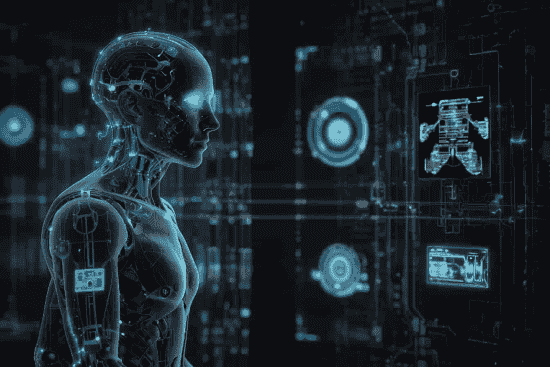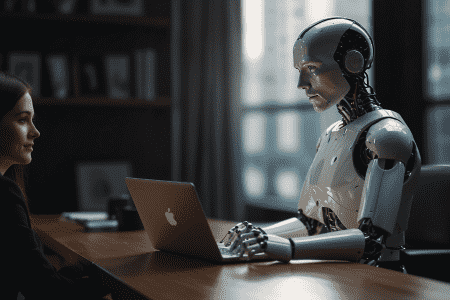
Unlocking Efficiency: How AI-Driven Interviews Transform Hiring Processes
AI algorithms can quickly analyze large volumes of data, identify top candidates, and present recruiters with a shortlist. This significantly reduces time-to-hire and allows recruiters to focus their efforts on engaging with high-potential candidates.
Introduction
In today's fast-paced world, businesses are constantly seeking ways to streamline their operations and improve efficiency. One area where significant advancements have been made is in the realm of recruitment and talent acquisition. Traditional interview processes are often time-consuming, resource-intensive, and prone to bias. However, with the advent of AI-driven interview technology, organizations can now revolutionize their hiring processes and unlock new levels of efficiency.
The Evolution of Recruitment
The traditional recruitment process typically involves several stages, including job posting, resume screening, and multiple rounds of interviews. However, this process can be slow and cumbersome, leading to delays in filling critical positions. Moreover, human bias can sometimes cloud judgment, resulting in suboptimal hiring decisions.

Enter AI-Driven Interviews
AI-driven interview technology represents a paradigm shift in the way organizations conduct interviews. By leveraging machine learning algorithms and natural language processing (NLP), these systems are capable of simulating natural conversations with candidates. This not only saves time but also ensures a standardized and unbiased interview experience for all applicants.
Case Studies and Success Stories
Numerous organizations across industries have already experienced the transformative impact of AI in recruitment. Companies report significant reductions in time-to-fill, improved candidate quality, and substantial cost savings. By reallocating resources from repetitive administrative tasks to strategic recruitment initiatives, these organizations have gained a competitive edge in attracting and retaining top talent.

Challenges and Considerations
While AI holds immense potential in recruitment, its implementation is not without challenges. Concerns related to data privacy, algorithmic bias, and user acceptance must be carefully addressed to ensure successful adoption. Additionally, organizations must invest in proper training and change management processes to maximize the benefits of AI while mitigating potential risks.
Conclusion
In conclusion, the power of AI in recruitment lies in its ability to maximize resource utilization and drive efficiency throughout the hiring process. By automating repetitive tasks, providing data-driven insights, and enabling recruiters to focus on strategic initiatives, AI empowers organizations to attract top talent while minimizing recruitment costs. As AI technologies continue to evolve, organizations that embrace innovation in recruitment stand to gain a significant competitive advantage in the talent marketplace.
